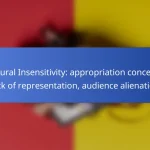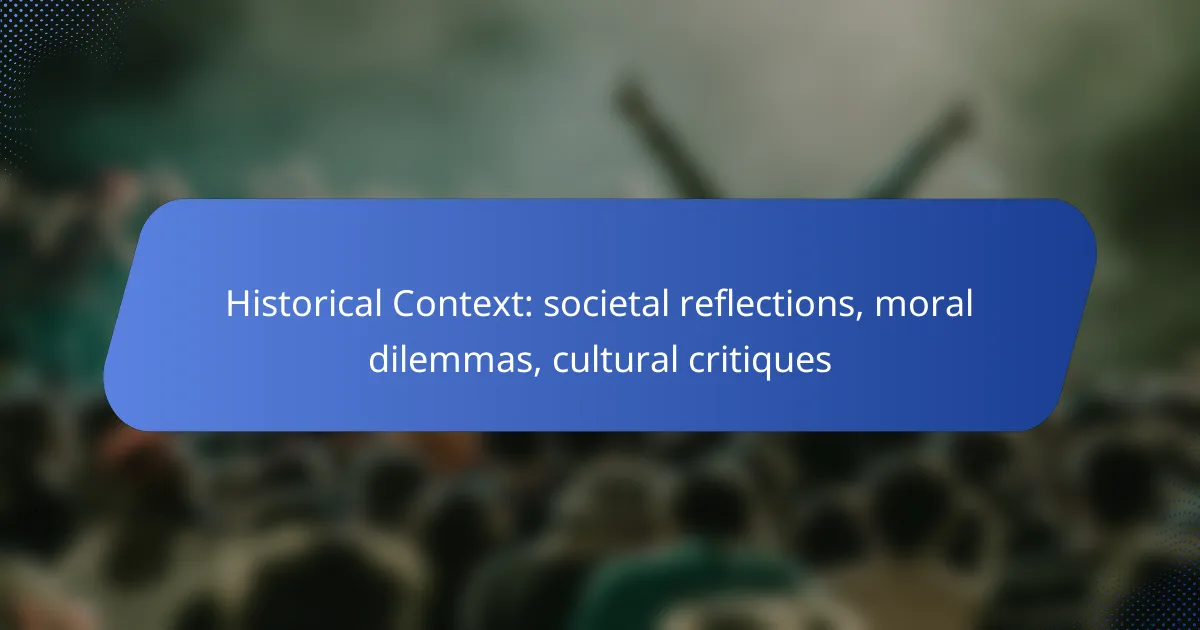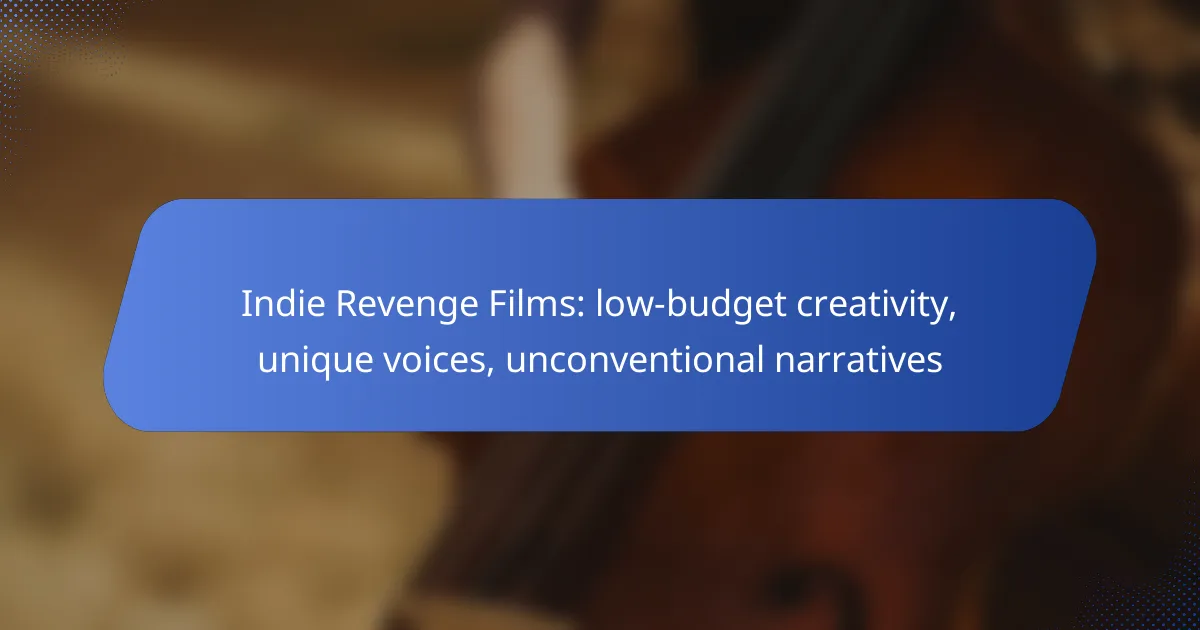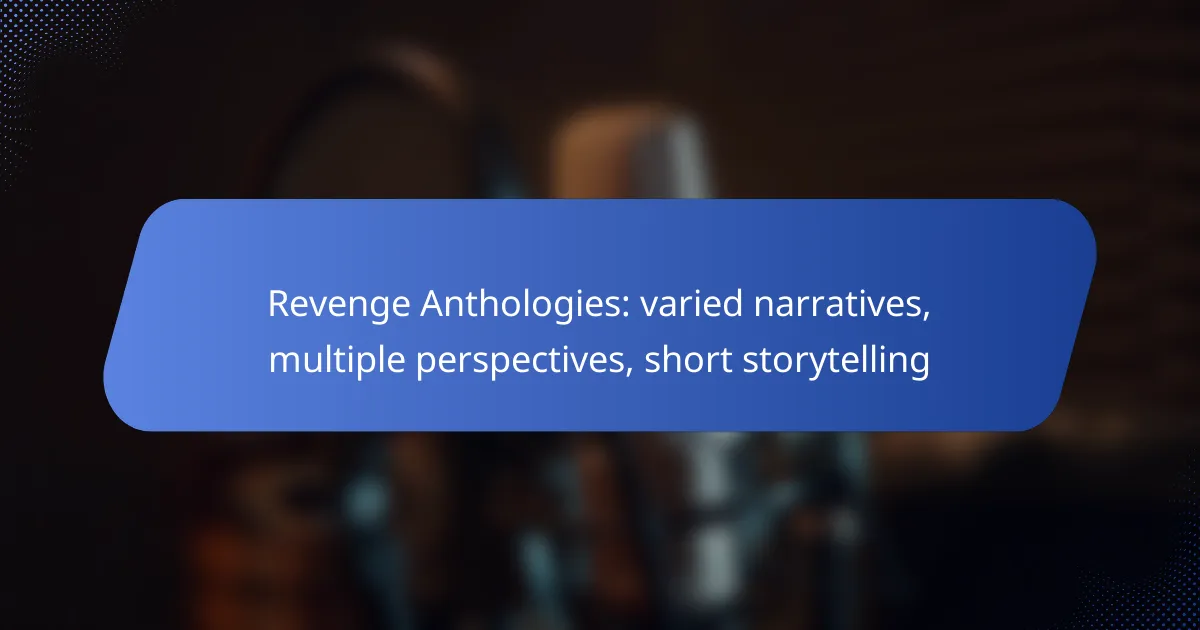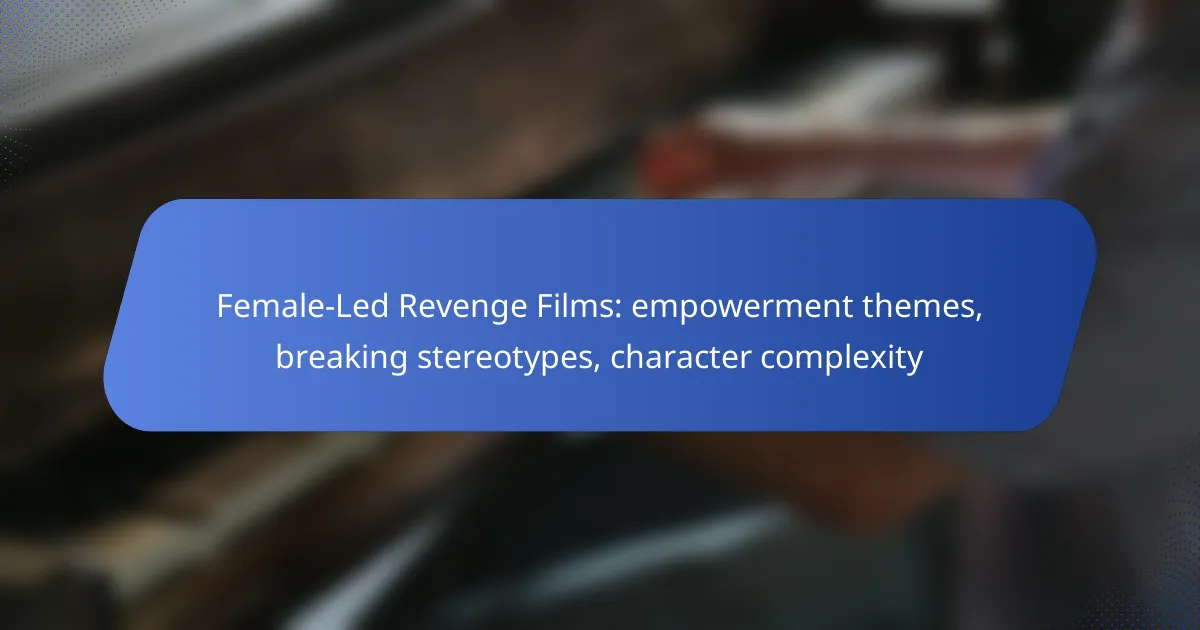Historical context plays a crucial role in shaping societal reflections in Canada, influencing collective identities and moral dilemmas. By examining this context, Canadians can engage critically with their past and its effects on present-day culture and social issues. Additionally, cultural critiques illuminate how literature, film, and art respond to and challenge the prevailing norms, revealing the complexities of human experience and ethical considerations throughout history.
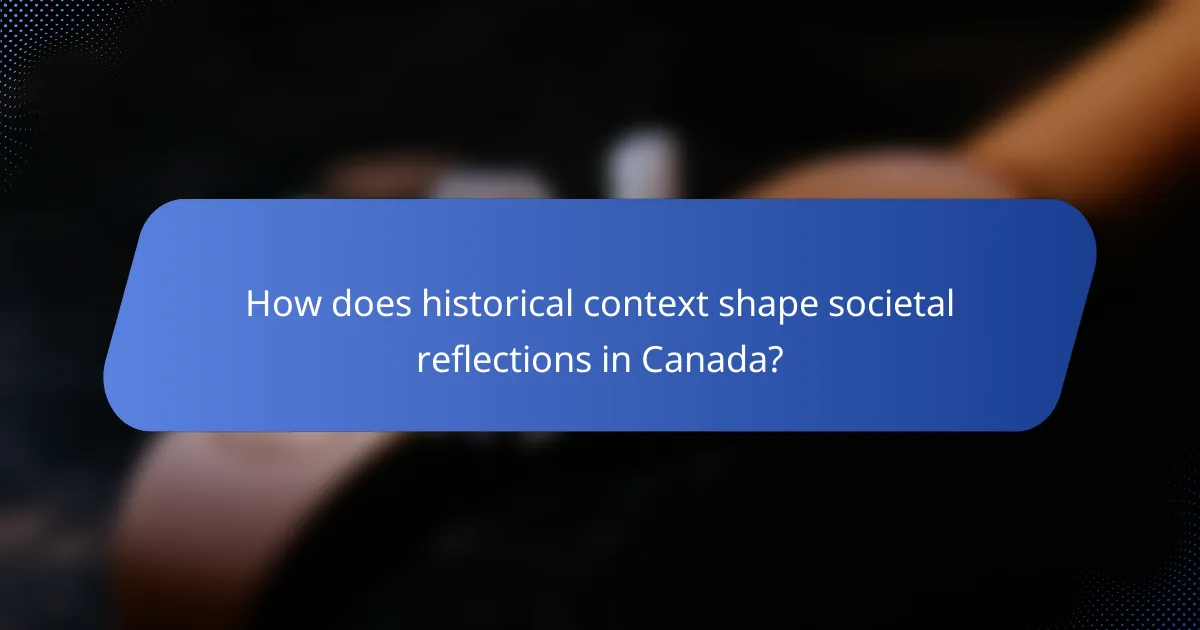
How does historical context shape societal reflections in Canada?
Historical context significantly influences societal reflections in Canada by shaping collective identities, values, and moral dilemmas. Understanding this context allows Canadians to critically engage with their past and its ongoing impact on contemporary culture and social issues.
Influence of Indigenous narratives
Indigenous narratives play a crucial role in shaping Canadian societal reflections by providing alternative perspectives on history and identity. These narratives often highlight the importance of land, community, and spirituality, contrasting with mainstream historical accounts that may overlook Indigenous experiences.
Incorporating Indigenous voices into education and public discourse fosters a deeper understanding of the complexities surrounding reconciliation and cultural respect. Acknowledging these narratives encourages a more inclusive society that values diverse histories.
Impact of colonial history
The impact of colonial history is evident in Canada’s societal reflections, as it has created enduring inequalities and moral dilemmas. The legacy of colonization affects various aspects of life, including socio-economic status, access to education, and health outcomes for Indigenous peoples and other marginalized communities.
Recognizing this colonial past is essential for addressing systemic issues and fostering social justice. Canadians are encouraged to engage in discussions about reparations and policy changes that can help rectify historical injustices.
Role of multiculturalism
Multiculturalism is a defining feature of Canadian society that shapes reflections on identity and community. By embracing diverse cultures, Canada promotes inclusivity and encourages dialogue among different groups, which can lead to greater understanding and cooperation.
However, multiculturalism also presents challenges, such as balancing cultural preservation with integration. Canadians should strive to create spaces where all cultures can thrive while addressing potential conflicts that arise from differing values and practices.

What moral dilemmas arise from historical events?
Historical events often present complex moral dilemmas that challenge societal values and ethics. These dilemmas can stem from actions taken by individuals or institutions that have long-lasting impacts on communities and cultures.
Ethical implications of residential schools
The establishment of residential schools has raised significant ethical concerns regarding cultural assimilation and the treatment of Indigenous peoples. These institutions aimed to erase Indigenous identities, leading to profound psychological and social consequences for generations.
Critics argue that the forced removal of children from their families and communities constitutes a violation of human rights. The long-term effects include loss of language, culture, and identity, prompting ongoing discussions about accountability and healing.
Debates on historical reparations
Historical reparations involve compensating groups who have suffered injustices, such as slavery or colonialism. This topic generates heated debates about the extent of responsibility and the most effective forms of restitution.
Supporters advocate for financial compensation, land return, or educational initiatives to address historical wrongs. Opponents often question the feasibility and fairness of reparations, arguing that it may not effectively resolve underlying issues of inequality.
Controversies surrounding historical monuments
Monuments often serve as symbols of a society’s values, yet many have become focal points for controversy due to their associations with oppressive histories. Debates arise over whether to remove, relocate, or contextualize these monuments in light of their historical significance.
Communities must weigh the importance of preserving history against the need to acknowledge and rectify past injustices. Engaging in public discussions and considering diverse perspectives can help navigate these complex issues and foster a more inclusive narrative.
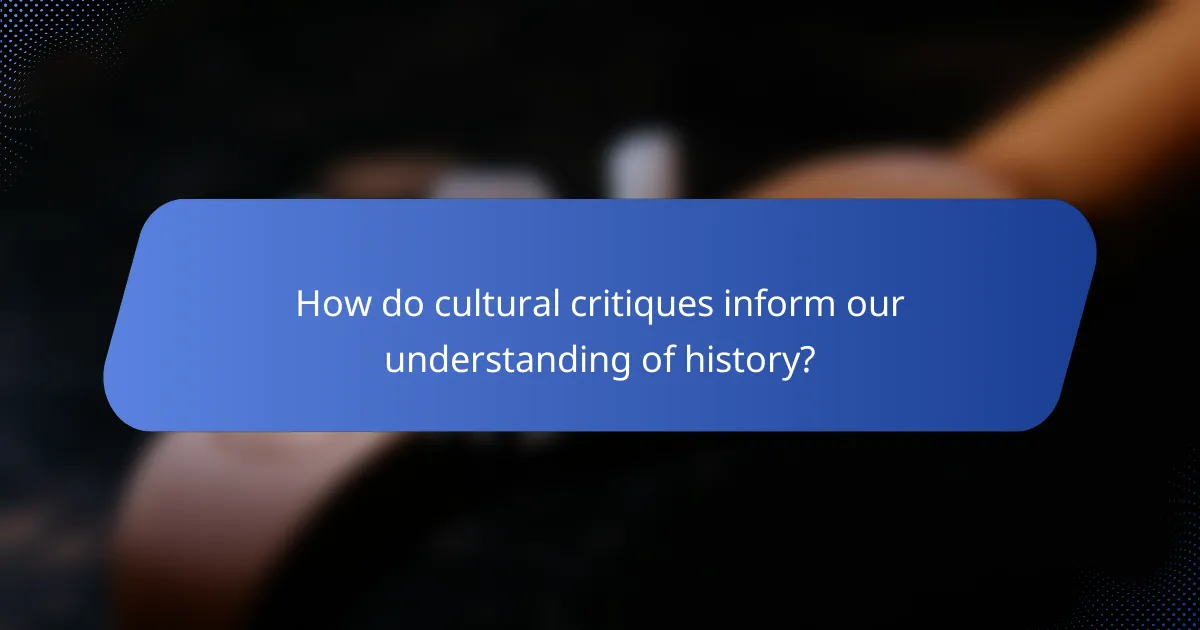
How do cultural critiques inform our understanding of history?
Cultural critiques shape our understanding of history by highlighting the moral dilemmas and societal values that influence historical narratives. They examine how literature, film, and art reflect and challenge the prevailing norms of their time, offering insights into the complexities of human experience.
Analysis of Canadian literature
Canadian literature often serves as a lens through which societal issues are explored, reflecting the diverse cultural landscape of the country. Authors like Margaret Atwood and Alice Munro delve into themes of identity, gender, and colonialism, prompting readers to reconsider historical narratives and their implications.
Literary critiques can reveal how historical events, such as the treatment of Indigenous peoples or the impact of immigration, are portrayed in fiction. This analysis encourages a deeper understanding of the moral dilemmas faced by individuals and communities throughout Canada’s history.
Film and media representations
Film and media play a crucial role in shaping public perceptions of history, often dramatizing events to highlight moral complexities. Documentaries and historical dramas can provide a platform for underrepresented voices, challenging dominant narratives and encouraging critical reflection on past injustices.
For instance, films like “The Apology” and “Indian Horse” confront the legacy of residential schools in Canada, prompting discussions about reconciliation and the ongoing impact of colonialism. These representations can influence societal attitudes and inform contemporary debates on justice and equity.
Art as a reflection of societal values
Art captures the essence of societal values and moral dilemmas, often serving as a critique of historical events. Through various mediums, artists express their perspectives on issues such as war, inequality, and environmental degradation, prompting viewers to engage with these themes critically.
In Canada, public art installations and exhibitions often address historical injustices, such as the legacy of colonization. By reflecting on these societal values, art can foster dialogue and inspire action toward a more equitable future, reinforcing the importance of cultural critiques in understanding history.

What frameworks can be used to analyze historical narratives?
Several analytical frameworks can provide insights into historical narratives, helping to uncover underlying societal reflections, moral dilemmas, and cultural critiques. Critical race theory and feminist perspectives are two prominent approaches that highlight different dimensions of history and its impact on various groups.
Critical race theory
Critical race theory (CRT) examines the ways in which race and racism intersect with other social categories in historical narratives. It emphasizes that historical accounts often reflect the perspectives of dominant groups, marginalizing the experiences of people of color. By analyzing these narratives through a CRT lens, one can reveal systemic inequalities and challenge prevailing historical interpretations.
When applying CRT, consider the context in which historical events occurred and the power dynamics at play. For example, examining the portrayal of civil rights movements can uncover biases in mainstream narratives that overlook the contributions of marginalized communities. This approach encourages a more inclusive understanding of history.
Feminist perspectives
Feminist perspectives focus on the role of gender in shaping historical narratives, highlighting how women’s experiences and contributions have often been overlooked or misrepresented. This framework seeks to uncover the moral dilemmas faced by women throughout history and critiques the patriarchal structures that have influenced societal norms and values.
To effectively analyze history through a feminist lens, consider the representation of women in key events and the impact of gender roles on those narratives. For instance, exploring the suffrage movement reveals not only the struggle for women’s rights but also the intersectionality of race and class within that fight. This perspective encourages a broader understanding of historical events and their implications for contemporary society.

How can we apply historical lessons to contemporary issues?
Applying historical lessons to contemporary issues involves recognizing patterns of behavior and societal responses that have shaped past events. By understanding these dynamics, we can better address current challenges and avoid repeating mistakes.
Addressing systemic inequalities
Systemic inequalities often stem from historical injustices that have persisted over time. To effectively address these issues, it is crucial to identify the root causes, such as discriminatory policies or economic disparities, and implement targeted reforms. For instance, initiatives aimed at equitable access to education and healthcare can help bridge gaps in opportunity.
Engaging with affected communities is essential for understanding their specific needs. Listening to voices from marginalized groups can guide policymakers in creating more inclusive solutions. Regular assessments of progress can ensure that efforts remain aligned with the goal of reducing inequalities.
Promoting social justice movements
Social justice movements draw on historical lessons to advocate for change and raise awareness about ongoing issues. These movements often emphasize the importance of solidarity and collective action, which have proven effective in past struggles for civil rights and equality. For example, the civil rights movement in the United States serves as a powerful reminder of the impact of organized advocacy.
To promote social justice today, it is vital to leverage digital platforms for outreach and mobilization. Grassroots campaigns can benefit from social media to amplify their messages and connect with a broader audience. Additionally, fostering partnerships with established organizations can enhance the effectiveness of these movements by pooling resources and expertise.

What emerging trends are shaping the future of historical discourse?
Emerging trends in historical discourse are increasingly influenced by technology, globalization, and a focus on inclusivity. These trends are reshaping how history is studied, interpreted, and shared across diverse audiences.
Digital humanities and history
Digital humanities integrate digital tools and methods into historical research, allowing for innovative ways to analyze and present historical data. This approach enables historians to visualize complex datasets, create interactive timelines, and engage broader audiences through online platforms.
For example, projects like digital archives and online exhibitions provide access to primary sources that were previously difficult to reach. Historians can collaborate across disciplines, enhancing the depth and breadth of their analyses.
Global perspectives on Canadian history
Global perspectives on Canadian history emphasize the interconnectedness of Canada with the world, challenging traditional narratives. This approach encourages historians to consider international influences on Canadian events and policies, such as immigration patterns and trade relationships.
By incorporating global viewpoints, historians can better understand the complexities of Canadian identity and its role in global history. This perspective often highlights underrepresented voices and experiences, enriching the overall narrative.
Engagement with Indigenous knowledge systems
Engaging with Indigenous knowledge systems is crucial for a comprehensive understanding of history in Canada. This involves recognizing the value of oral histories, traditional practices, and Indigenous perspectives on historical events.
Historians must approach Indigenous knowledge with respect and collaboration, often working directly with Indigenous communities to ensure accurate representation. This engagement not only enriches historical discourse but also fosters reconciliation and understanding between cultures.




